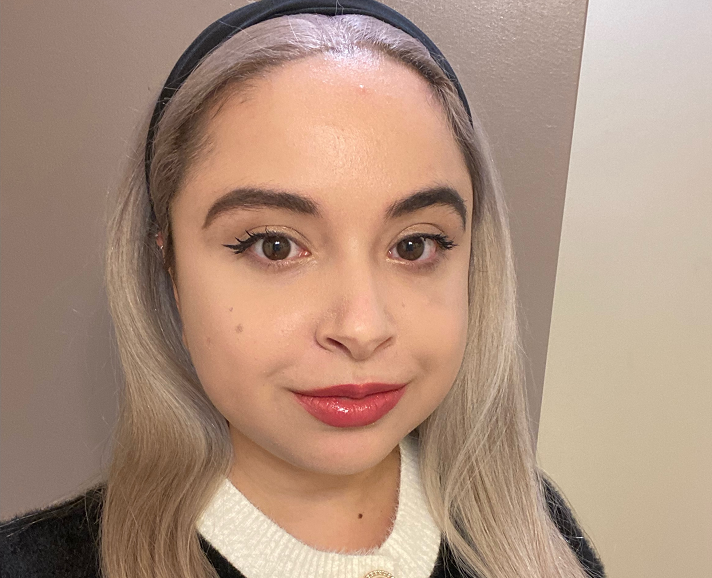
How Social Media can help Metastatic Breast Cancer (MBC) Patients
15.07.2025Nina Morena from McGill University in Canada was an Open Fellow at the Weizenbaum Institute working on her project about “Knowledge Making and Online Literacies of Young People with Metastatic Breast Cancer”. We spoke to her about her research.
Nina Morena's approach bridges the fields of Communication Studies and Health Science. She focuses on people’s information habits and patient-reported outcomes on the context of breast cancer. Studies by the Canadian Cancer Society show that between the ages of 30 and 49, breast cancer is the leading cause of cancer death, accounting for 17% of cancer deaths in this age group. Women diagnosed with breast cancer under 35 tend to be diagnosed with more aggressive, higher-grade tumors. Still there is a lack of research and public attention.
Nina, your research looks at how people with metastatic breast cancer (MBC) engage in knowledge work on social media. Could you share some insights into how they use platforms like Instagram or TikTok to do this?
These communities use platforms like Instagram, TikTok, and others to share their experiences living with MBC. They explain their disease, describe what living with it is like, and discuss the reasons why advocacy is so needed and important.
What kind of stories and information do people with MBC share on social media and how might this be helpful not only for other patients but also for healthcare professionals?
In my research, I have found that the stories and information being shared in this context most often pertain to the everyday experiences of managing the disease, which include describing doctors’ appointments, treatment days (including ways of accessing treatment and clinical trials), mental health, and general life. For other patients, this can act as a way to connect with others facing the same diagnosis and to demystify aspects of managing MBC. For healthcare professionals, these stories can serve as a way to learn about what patients are concerned with, what they value most, and what might be missing from their care.
What are the risks of misinformation on health-related knowledge?
Misinformation in the context of health-related knowledge is always a risk that should be taken seriously. However, despite these risks, the benefits of social media engagement when it comes to building community support should not be overlooked.
What role do emotions—such as grief, pain, optimism, and even humor—play in the content people create online?
Emotions and affect are important parts of the stories shared online about MBC. Expressions of emotion can lead to the development of deeper bonds between community members. These are also spaces in which it becomes okay and acceptable to express emotions that range from hope and optimism, to humor, to grief and pain—demonstrating that one does not always need to present a “happy” self, but that community members are there to offer support no matter what.
Do you see an impact on community building and women's activism through this kind of online communication on social media? Are there any effects that carry over into offline life as well?
Yes, absolutely. There are contexts where online community building and activism have led to offline activist movements geared toward local governments and policymakers. There are also cases where local advocacy groups will host events where it is possible for patients in the same area to meet each other and connect.
What practical insights from your research could help inform medical professionals, patients, and the general public about this topic?
Overall, the descriptions of life with MBC can help to inform medical professionals on aspects of care that might be missing or that could be improved among this population. For patients, these online communities are a reminder that they are not alone, and that there are many others out there they can connect with. For the general public, these communities have much to teach us about the current landscape of breast cancer care and treatment, and ways that we can support our own local breast cancer advocacy organizations.
Thank you for the interview!
The interview was conducted by Katharina Stefes